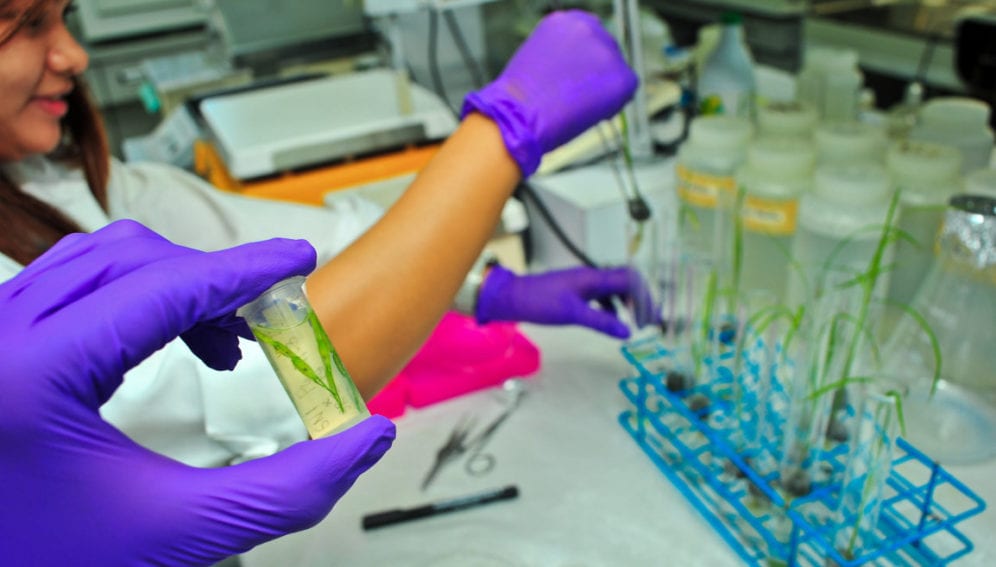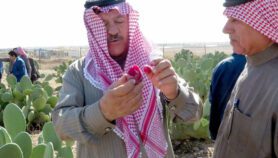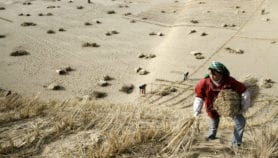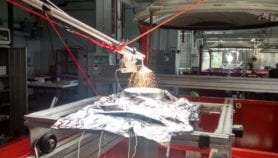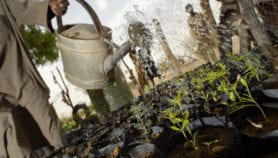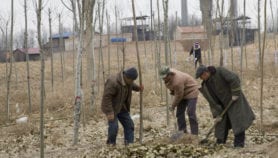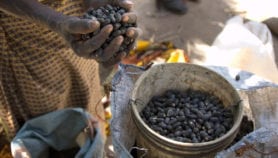By: Wagdy Sawahel
Send to a friend
The details you provide on this page will not be used to send unsolicited email, and will not be sold to a 3rd party. See privacy policy.
[CAIRO] Desert soil microbes could help halt desertification and boost agriculture in arid regions of the Middle East and North Africa, according to a study.
Scientists from the United Arab Emirates [UAE] have isolated local salt- and drought-tolerant strains of Rhizobia, soil bacteria that fix nitrogen when they become established inside the root nodules of legumes.
Rhizobia bacteria establish a mutually beneficial relationship with their host plant in which they exchange nitrogen they fix for nutrients plants produce through photosynthesis, and could be integral to improving the quality and nitrogen content of soil.
The study was carried out by scientists from the Dubai-based International Center for Biosaline Agriculture (ICBA) in collaboration with the Dubai branch of the Birla Institute of Technology and Science.The discoveries could pave the way to improving the production of leguminous plants cultivated in arid environments, says the study published in the February issue of the Emirates Journal of Food and Agriculture.
"The project was conceived when I noticed, at a research farm in Dubai, some leguminous crops forming nodules to fix atmospheric nitrogen," lead author Nanduri Rao, a researcher at ICBA, tells SciDev.Net.
Rao's team began isolating several naturally moccurring Rhizobia strains from the root nodules of three leguminous plants: sesbania (Sesbania sesban), lablab (Lablab purpureus) and pigeon pea (Cajanus cajan).
Rao explains that the team has also been studying the Rhizobia strains'tolerance to environmental stresses such as high temperature, salinity, acidity and heavy metal concentrations in laboratory tests.
"The strains, native to the United Arab Emirates desert, were found to have a high tolerance to such stresses," Rao says, adding that a full length journal article based on this additional research is currently being prepared.
Daniele Daffonchio, professor of microbiology at the University of Milan, Italy, tells SciDev.Net that the identification of microbes capable of surviving in stressful conditions has important implications for agriculture in arid regions.
Philippe Normand, professor of microbial ecology at the University of Claude Bernard Lyon 1, France, tells SciDev.Net that the UAE project "has great potential for improving plant productivity under extreme environments," and is "an interesting approach for deserts".
Normand is also a collaborator with the EU-funded BIODESERT project, which is planning a research project in North Africa that aims to exploit microbes from deserts and arid environments to improve farming practices.
To facilitate this, the project will establish research laboratories with an advanced capacity for microbiology and microbial ecology studies at the University of Tunis in Tunisia.
Daffonchio, who is also coordinator for BIODESERT, says the project will aim to identify microbes that can improve the resistance of plants to water stress and drought, and could therefore make "a major contribution to saving water by decreasing water consumption".
Some of this work was published in PLOS ONE in October.
Ameur Cherif, professor of microbial biotechnology at the University of Manouba, Tunisia, and co-author of the PLOS ONE study, says that isolated bacteria or whole communities of these desert microbes that are "adapted to water scarcity and drought conditions constitute a key element in a larger anti-desertification strategy that could be planned for southern countries".
Link to full study in Emirates Journal of Food and Agriculture


